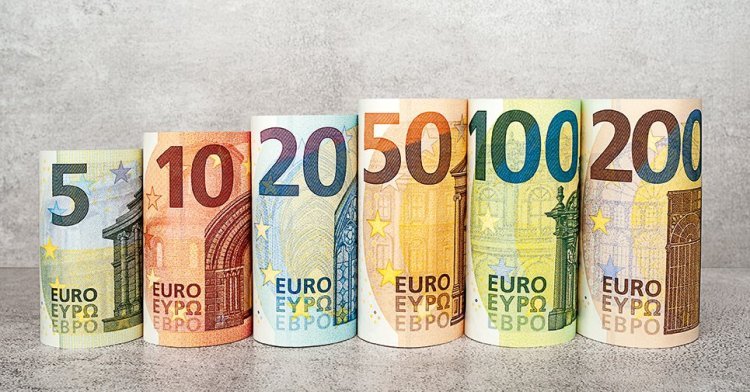Eurobonds, rebranded
COVID-19 has frozen cash flow in Europe’s economies. The sums needed not only to bridge the gap of wages, welfare payments, rents and more during lockdown but to reignite the economy afterwards have a mind-boggling amount of zeroes.
To tackle this shortage, a letter to the President of the EU Council, penned by nine European countries, demanded the launch of the so-called “coronabonds”. It was new enthusiasm for an old idea. The notion of “Eurobonds” has been floating around for as long as the common currency itself, and effectively entails a Eurozone-wide signature on the dotted line for member states to raise funds through issuing government debt.
Government debt is a promise made by a state to take an investor’s money now in return for paying regular “coupon” payments plus the initial sum at a point in the future. When Germany and the Netherlands want to raise revenue this way, they can do so at a favourable rate thanks to high trust in the health of their public purses. In contrast, investors demand a higher rate for riskier investments to compensate for the greater possibility of losing their money, meaning Spain, Italy and Greece among others face much higher costs.
A joint guarantee of a given amount of debt of any member state would be a gold stamp of approval and would help poorer member states fund medical supplies, public sector wages and emergency business loans in the short run, bailouts in the medium term and job creation once lockdown is over.
Not a one-way street
This reduced cost of borrowing would be a clear advantage for financially weaker member states, and ostensibly less so for Germany and the Netherlands – hence their vehement rejection of the idea. The fresh debate over coronabonds raises an old painful question: to what extent should richer member states in the north support poorer, younger member states in the south? Rich member states fear a situation of “moral hazard”, in which they co-shoulder future liabilities of poorer member states, which in turn have less incentive to keep the bailiffs out by themselves.
Ironically, in the long run, rich countries clearly stand to benefit from a more stable and secure Eurozone too – they just don’t seem to have grasped it yet. By improving trade prospects, lowering the risk of other Eurozone members suffering new debt crises down the line and in presenting a more credible image of a more united, more empathetic Europe to the world, the tightest purse strings in Europe will also make gains.
Déjà vu
Today’s debate over coronabonds rings some all-too-familiar bells. In the wake of the euro crisis, enthusiasm for the long-touted “banking union” resurfaced. Since the launch of the common currency, although arguably unparalleled as a political project, glaring structural flaws have remained. The euro caused lending across borders to swell rapidly, causing a great interdependency between banks, yet without tools or rules at the European level to keep checks on them. Most importantly, there was no joint backup scheme should a crisis occur.
Despite huge strides to shift banking regulation to the European level, the Eurozone remains a fair weather system not designed to survive a storm. To ensure its safety in times of crisis, a joint pot of money into which all Eurozone members pay is crucial. This emergency piggy bank would be used to guarantee a small percentage of all deposits held in European banks – hence its name of the European Deposit Insurance Scheme (EDIS).
This idea has been described by various political scientists as the “cornerstone” of a true banking union*. In the event of a crisis, financial help would be available for failing banks without creating extreme pressure on its home member state’s public finances or its fellow national banks to bail it out. Given that many European governments are highly dependent on their banks to hold a lot of their own sovereign debt, the deposit scheme is a crucial step towards breaking the infamous “doom loop”, a vicious cycle of failing banks and over-indebted governments erring together towards bankruptcy.
While the Commission continues to push for completion of the banking union, it is clear that huge obstacles remain. Exactly as in the case of coronabonds, German and Dutch, and indeed also Finnish and Austrian, governments fear having to subsidise weaker systems. Exactly as in the case of coronabonds, these countries overlook the long-term benefits they would themselves reap. And the security of the whole Eurozone remains in jeopardy because of it.
Stability of the Eurozone: forever on the back burner
This is not to say there has been no response from the EU in response to the current pandemic. Aside from the shared medical supplies, considerable financial firepower is being mustered. But these measures are short-term boosts to tackle immediate problems, not long-term solutions to fix structural flaws. The difference is akin to putting out fires but refusing to buy fire engines.
The so-called “coronabonds” would make the Eurozone better equipped to reduce the economic impact of current and future crises. Teamed with a proper banking union, Eurobonds would go a long way to making the Eurozone worth far more than the sum of the parts. Without these measures, it is no stronger than its weakest link. The inevitable failure to reach agreement over either shows that member states will only spend to mop up today’s issues, not share to pre-empt tomorrow’s, when it comes to the common currency. Without proper safety nets, economically weaker member states will always struggle more in times of crisis, and if just one or two are pushed over the public debt brink, the whole pack of cards risks coming down. That would be a crisis to which no Eurozone member is immune.


Follow the comments: |
|
